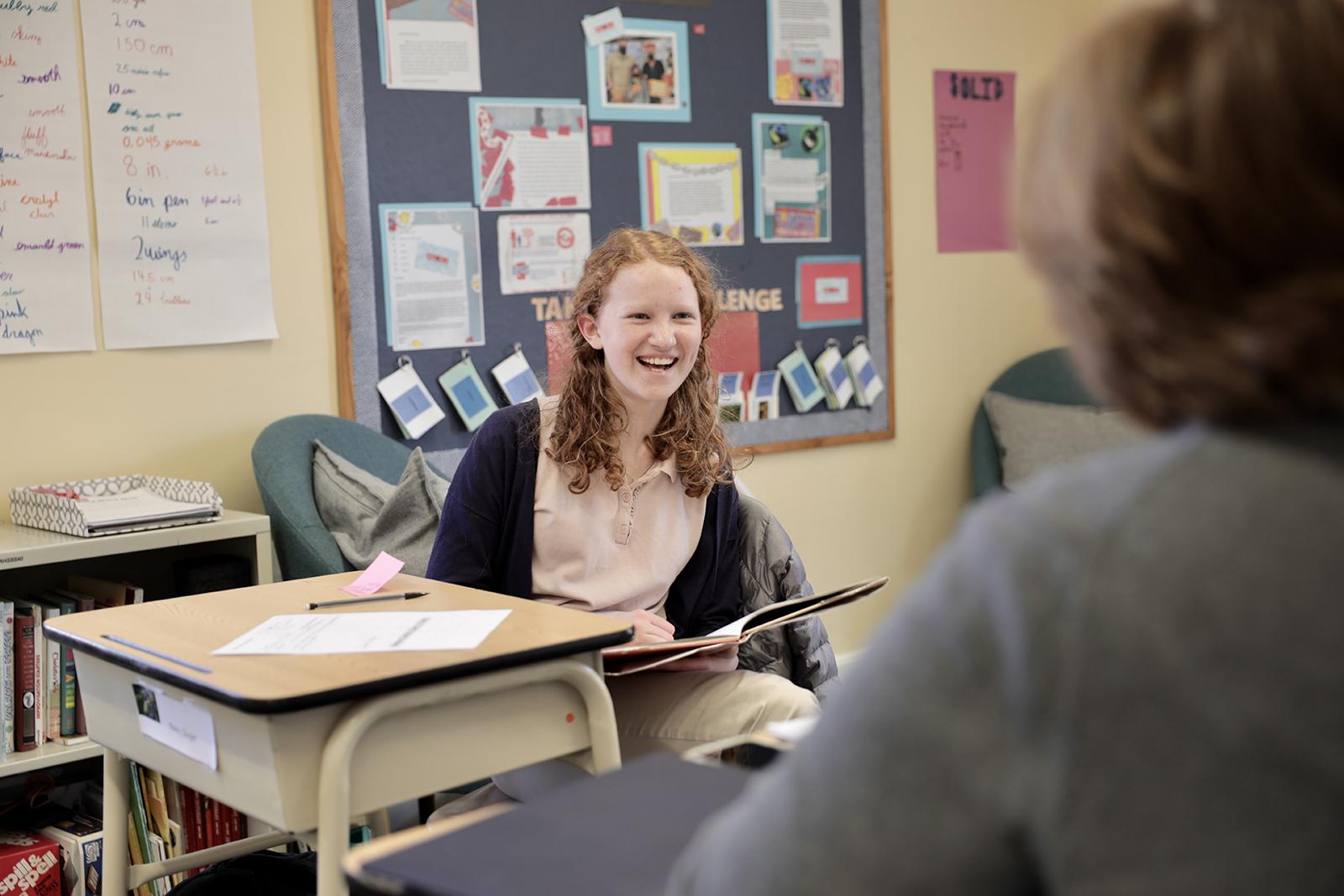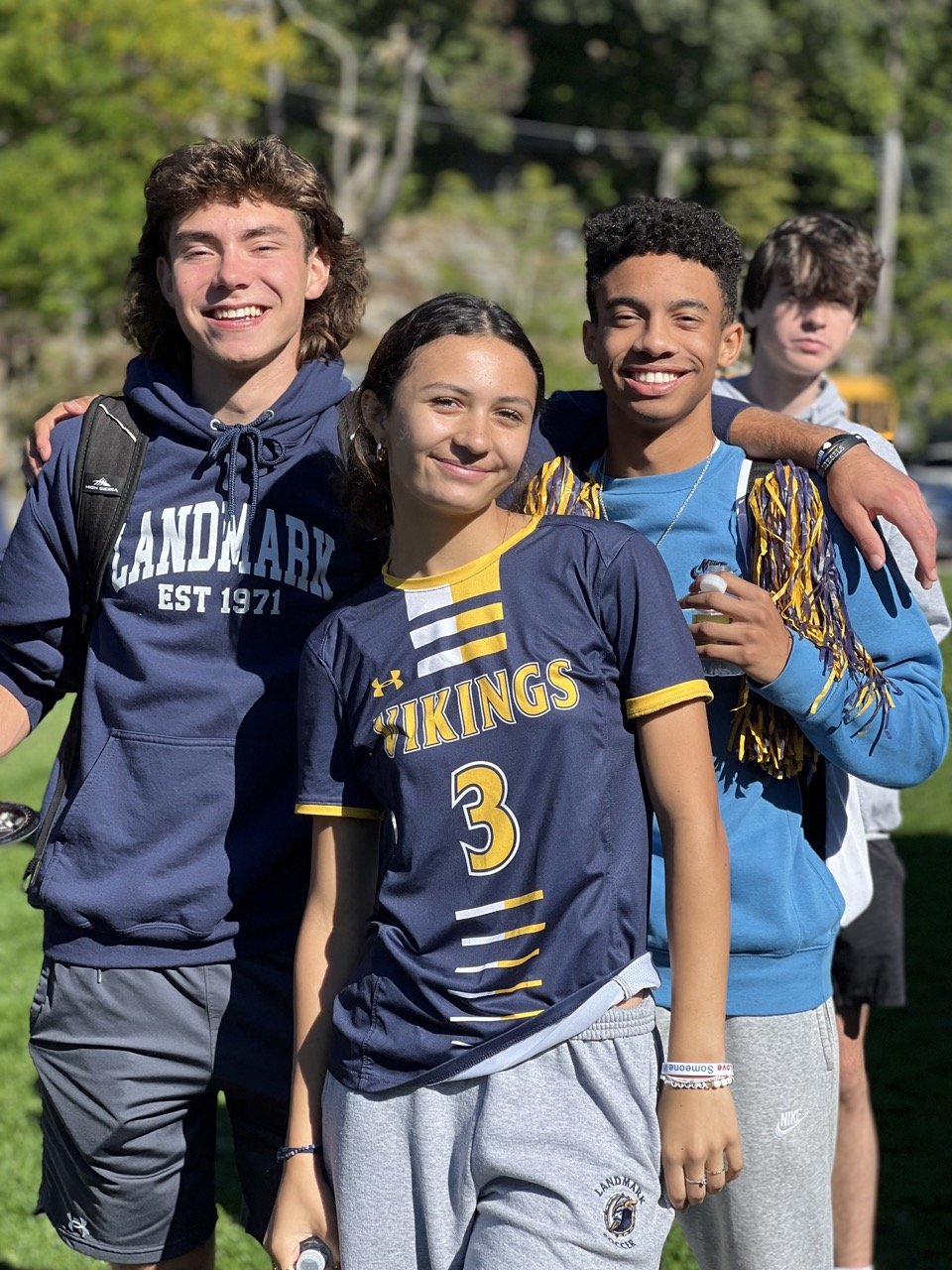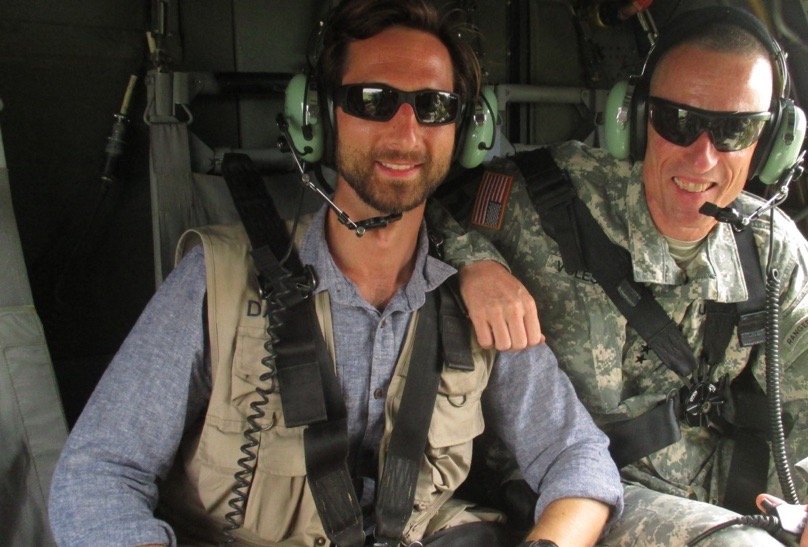- Our School
- Our Advantage
- Admission
- Elementary•Middle School
- High School
- Summer
- Giving
- Parent Resources
- For Educators
- Alumni
« Back
An Interview with Vanessa Rodriguez
March 24th, 2015
Dr. Jessie Voigts from Wandering Educators recently reviewed Landmark360 expert blogger Vanessa Rodriguez’s latest release, The Teaching Brain: An Evolutionary Trait at the Heart of Education. Below you will find a brief review and interview with the author.
“Let me tell you about “The Teaching Brain”. I picked it up, and couldn’t put it down. It delves deep into how teachers teach – and provides an interactive model for teaching – and learning. The process of teaching isn’t simple. There are myriad factors we need to think of and there are a plethora of teaching models that have been promoted over the years. And yet, there has still been something missing, a common-sense approach to teaching the same way we live our lives – thoughtfully, interactively, developmentally, and with purpose. This book, this exciting research, is that piece of the puzzle that has been missing.” – Dr. Jessie Voigts
Interview with the author
Voigts: Please tell us about your new book, The Teaching Brain
 Rodriguez: The Teaching Brain challenges widely accepted theories of teaching and offers a unique idea based on a simple yet empowering truth: we are all teachers. This book draws on the science of human development to redefine teaching as a social cognitive skill that develops in all people over time. The book marshals a wealth of research and experience to construct an entirely innovative framework for thinking about, talking about, and supporting this essential social endeavor.
Rodriguez: The Teaching Brain challenges widely accepted theories of teaching and offers a unique idea based on a simple yet empowering truth: we are all teachers. This book draws on the science of human development to redefine teaching as a social cognitive skill that develops in all people over time. The book marshals a wealth of research and experience to construct an entirely innovative framework for thinking about, talking about, and supporting this essential social endeavor.
Voigts: What inspired you to write this book?
Rodriguez: I spent over a decade in a classroom trying to defend my teaching decisions. I often found that the language I was using was not what administrators, researchers, and policy makers felt was appropriate evidence. I thought that a doctoral degree would help me to do this. What I found instead was that we don't have an understanding of teaching as we do learning – we don't understand the natural development of teaching in all humans. It suddenly made perfect sense to me that for all of those years I struggled to describe my teaching because we have a very limited vocabulary and overall framework for what it is! I wanted to open the door to a new way of defining teaching.
Voigts: Your theory of teaching takes into account real life interactions — and the growth of teachers. Can you give us a few examples as to how you developed your theory?
Rodriguez: It's hard to identify a specific example within the development of this theory since this theory is just how I see the world. Teaching is a human interaction. Any time something involves an interaction with another human you have to take into account the complex nature of the brain. Our brains are complex dynamic systems. Because they are dependent on our personal context they are forever changing. I would also note that most theories of teaching are actually stemming from theories of learning which is why they don't account for real life interactions or the growth of teachers. They are learner-centric and not about how humans teach but how humans learn. My theory is specifically about how we all develop our ability to teach.
Voigts: Why do teachers need to read this book?
Rodriguez: We are all teachers from as early as age one, we have the ability to teach and we teach without any prompting. However, we've never considered why we naturally teach nor how that natural ability shifts when we teach in the artificial setting of a classroom. By understanding the natural development of teaching, you'll become enlightened on your personal development. Rather than being told how to teach based on a one-size-fits-all approach, you can discover your own teaching awarenesses; and therefore how you can more effectively interact with your learners.
Voigts: What's up next for you?
Rodriguez: The book highlights the overall theory I've developed on teaching but there's actually a side of my research that it doesn't delve into much. I'm currently designing and conducting studies to further understand the development of how humans teach. In the fall, I'll be looking at teachers and students brain activity as they interact. I hypothesize that when they feel like the interaction has been successful, we'll likely see their patterns of brain activity synchronize. So rather than just saying "when it's working you can feel it," we'll actually be able to say you can also see our brain activity synchronize and act as a cohesive system rather than individual parts!
Posted in the categories Learning Disabilities, Teaching.








.jpg?v=1652115432307)








